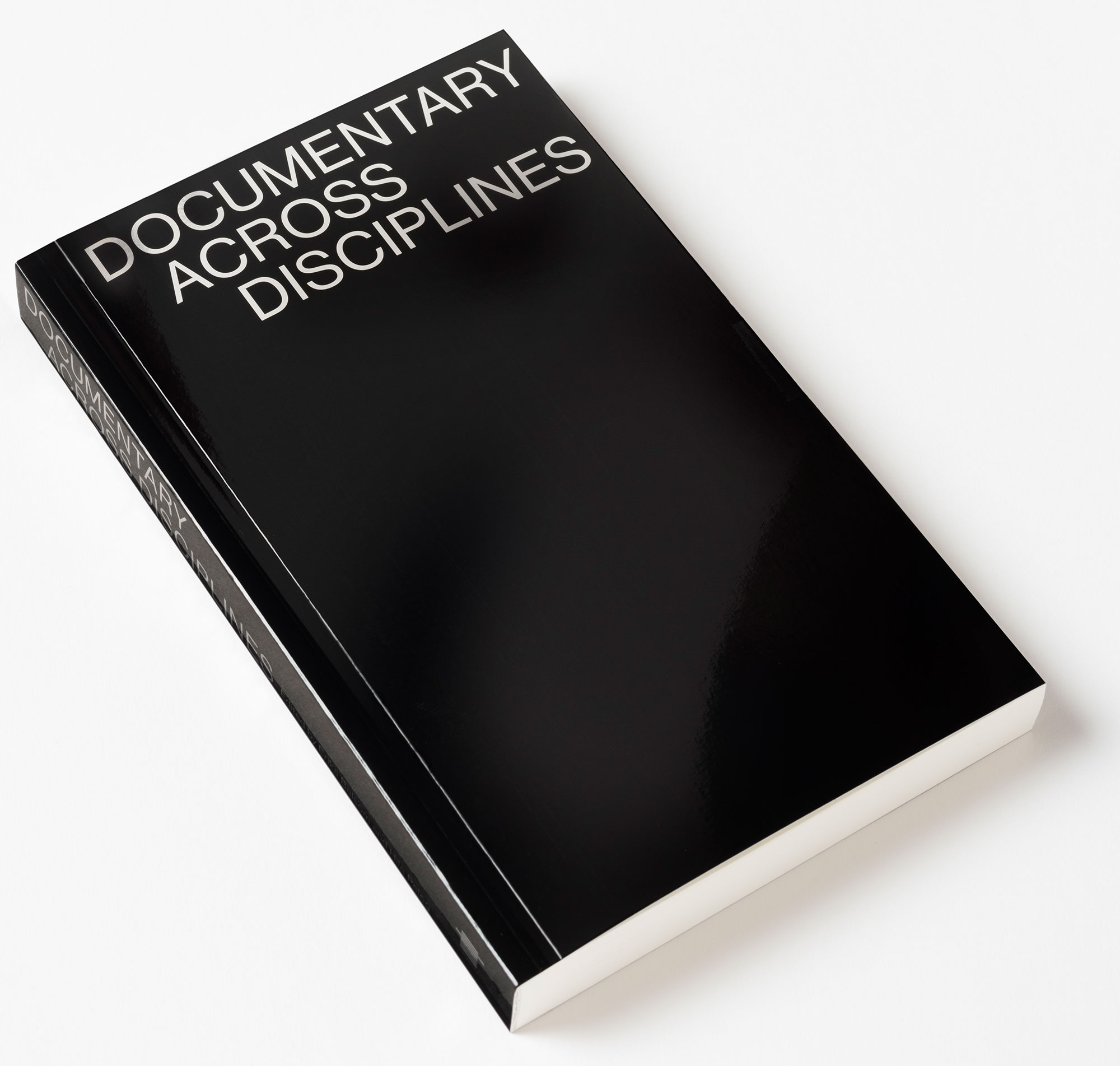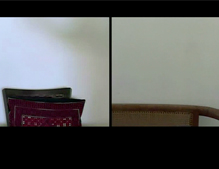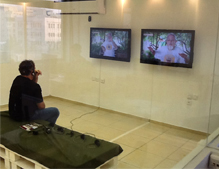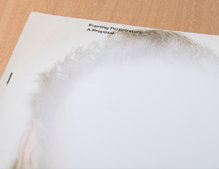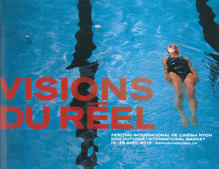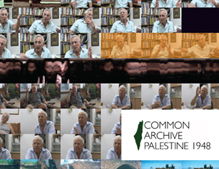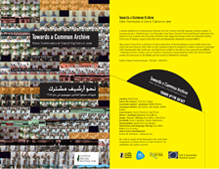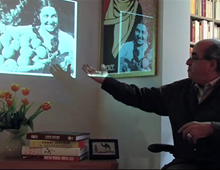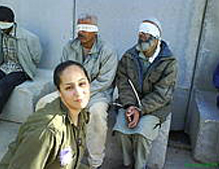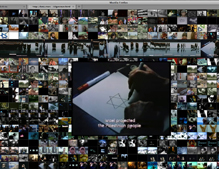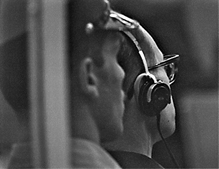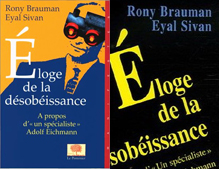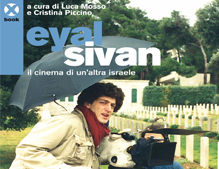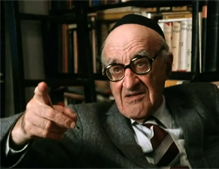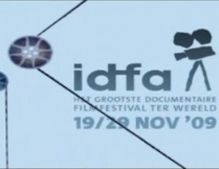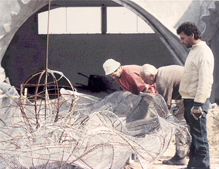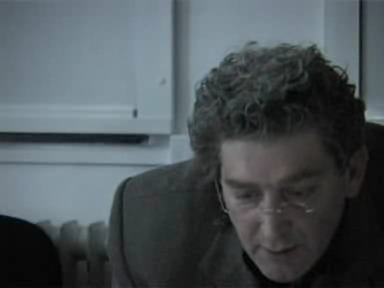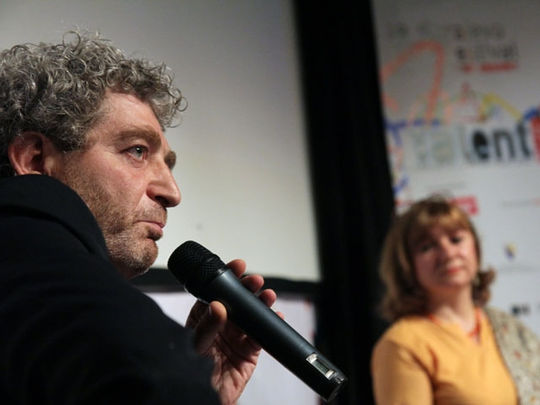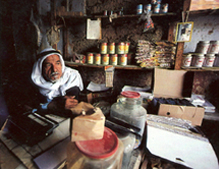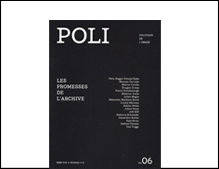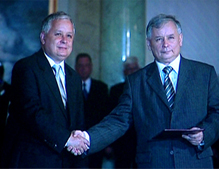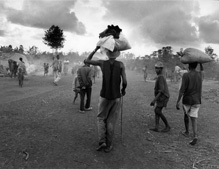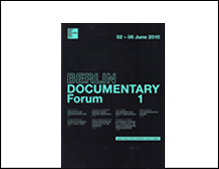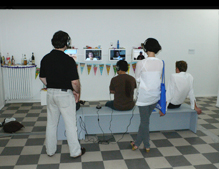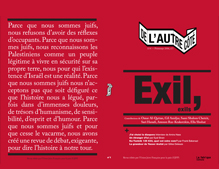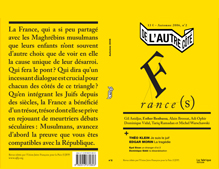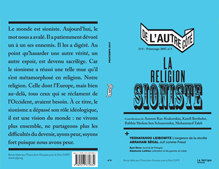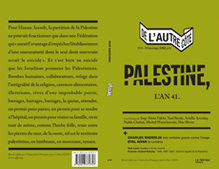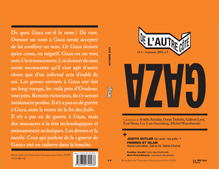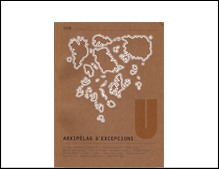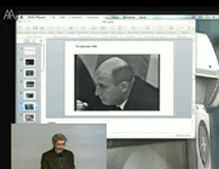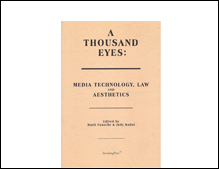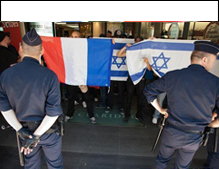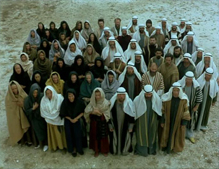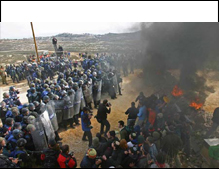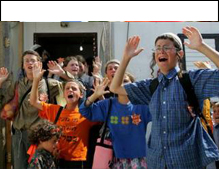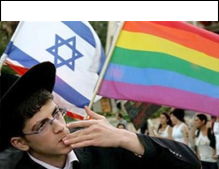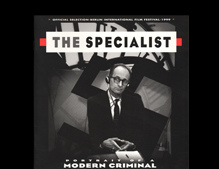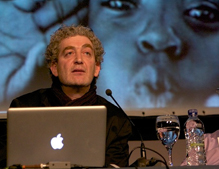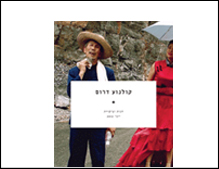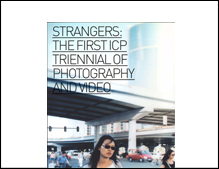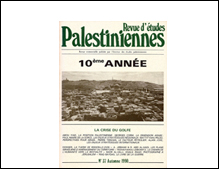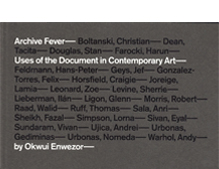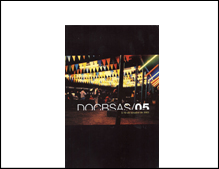-
Proposal for a visual media exhibition
with the participation of students of the Master of Film at the Dutch Film Academy, Amsterdam -
Get my films
Buy DVDs online at www.momento-films.com -
IZKOR
slaves of memory
Documentary film | 1990 | 97 min | color | 16mm | 4:3 | OV Hebrew ST -
Common Archive Palestine 1948
web based cross-reference archive and production platform
www.commonarchives.net/1948 - Project in progress - -
Montage Interdit [forbidden editing]
With professors Ella (Habiba) Shohat and Robert Stam / Berlin Documentary Forum 2 / Haus der Kulturen der Welt / June 2012 -
Route 181
fragments of a journay in Palestine-Israel
Documentary film co-directed with Michel Khleifi | 2003 | 272 min [4.5H] | color | video | 16:9 | OV Arabic, Hebrew ST
-
The Specialist
portrait of a modern criminal
Documentary film | 1999 | co-author Rony Brauman | 128 min | B/W | 4:3 | 35 mm | OV German, Hebrew ST -
Jaffa
the orange's clockwork
Documentary film | 2009 | 88 min | color & B/W | 16:9 | Digital video | OV Arabic, Hebrew, English, French ST
-
Montage Interdit
www.montageinterdit.net
Web-based documentary practice. A production tool, archive and distribution device | project in progress
-
Common State
potential conversation [1]
Documentary film | 2012 | 123 min | color | video | 16:9 split screen | OV Arabic, Hebrew ST -
Towards a common archive
testimonies by Zionist veterans of 1948 war in Palestine
Visual Media exhibition | Zochrot Gallery (Zochrot visual media lab) | Tel-Aviv | October 2012 - January 2013
-
I Love You All
Aus Liebe Zum Volk
Documentary film co-directed with Audrey Maurion | 2004 | 89 minutes | b/w & color | 35mm | OV German, French ST
The Specialist, a 1999 documentary film, written and directed by Israelis Rony Brauman1 and Eyal Sivan respectively, offers a unique perspective on a spectacle which exponentially increased the world’s comprehension of the Holocaust.2 In 1961, Adolf Eichmann, the Nazi bureaucrat who once headed the German government department which coordinated the transport of several million European Jews to their deaths during World War 2, faced trial by the State of Israel at Jerusalem.3 Eichmann was charged with 15 counts of crimes against the Jewish people, and his guilt was a foregone conclusion even before the hearings commenced.4 Nevertheless, Eichmann’s trial challenged the status quo in respect to numerous political and ontological issues, some of which I will elaborate upon in the course of this essay.5 The Specialist, released thirty- seven years after Eichmann’s execution in 1962, raised quandaries in respect to how the State of Israel has conducted its affairs during its short history.6 In this essay I will identify these questions and suggest how and why Sivan and Brauman, put them how they did.
In order to properly discuss The Specialist it is necessary to elaborate upon the situations which inspired its production. The first, and most apparent, of these is the Eichmann trial itself: an event which generated considerable discourse internationally within the period that it transpired.7 The second important inspiration for Sivan’s film was Hannah Arendt’s classic tome, Eichmann in Jerusalem: The Banality of Evil, first published in 1963.8 Sivan acknowledged that Eichmann in Jerusalem constituted the basis for The Specialist, within its opening credits.9 Arendt, a vocal critic of Hertzlian Zionism10, portrayed Eichmann as a personification of the abominable acts ostensibly normal people can commit when operating within totalitarian regimes.11 I would propose that, by making The Specialist in the late 1990s, Sivan meant to give renewed currency to the ideas Arendt had propounded in The Banality of Evil: regarding the potential threats posed to humanity by governmental policies and blind adherence to any ideology.12
Although The Specialist is ostensibly a film about the trial of Adolf Eichmann, it is apparent that Sivan meant to comment on wider issues - such as politics and the policies of modern states - than the destruction of European Jewry which took place during World War 2. Sivan, born at Israel in 1964, perceived parallels between the way in which the Nazis had treated the Jews of Europe and the treatment of Arab Palestinians by the State of Israel which persisted within the period in which he created The Specialist. “I grew up in Israel under the memory of the Shoah and its lessons. In 1989, during the first Intifada, I was living in Jerusalem, just opposite a Palestinian village. One day, there were shots, then attempts at escape and a launching of tear gas. There was a wind, and the gas entered through our open window. My mother closed it and cried. She said, “Now I understand why German neighbors closed their windows” I entered this framework, this Jewish tradition of giving voice to repudiated speech.” It is worth noting that both Eyal Sivan and Hannah Arendt have both been accused of being opponents of Zionism.14 “For him, Israelis are the Nazis of today, and the Palestinians, the Jews of today,” said Claude Lanzmann of Sivan in 2006.15 I would argue that Sivan is perhaps more culpable of this than Arendt, who spent several years working for a pro-Zionist group prior to the creation of the State of Israel in May 1948.16 In contrast, Sivan has directed a number of films which express opposition to the manner in which Jews have treated Palestinians since the UN partitioned former British Mandatory Palestine in 1947.17 Sivan defended his right to criticise Israel in 2003, by suing a French radio personality, who had slandered him on-air for libel. At the trial, Sivan was called to task by such fearsome pro-Zionist critics as Claude Lanzmann, the director of the iconic Holocaust documentary, Shoah.18 For this reason, I will argue throughout this essay that The Specialist might be interpreted as an indictment of Zionism.
Sivan chose to address the magnitude of the crimes committed by the Nazis against European Jewry by focussing on the testimony Eichmann gave at his trial.19 This approach is unusual, as far as documentaries about the Holocaust are concerned, inasmuch as the majority of such films tend to give voice to the survivors rather than the perpetrators.20 Though Sivan included the testimony of a few survivors in The Specialist, the primary concern of the film is not for the audience to become more familiar with personal perspectives from Holocaust victims.

